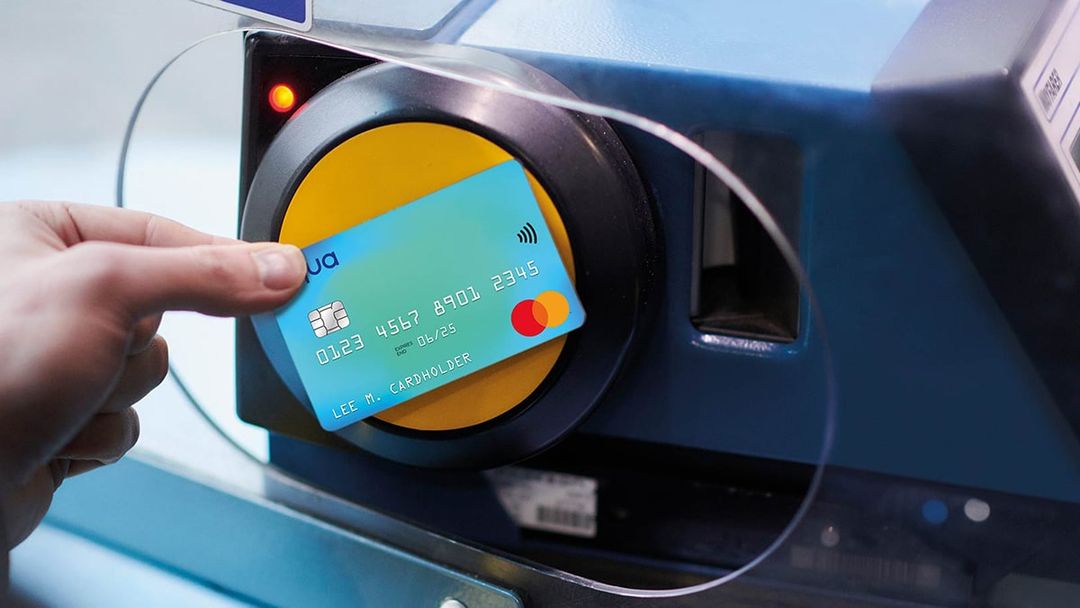How credit card payments work
Learn how credit card payments work, how and why credit card charges are applied and how to manage payments.

Credit cards offer some big advantages compared with other types of payment, including security and convenience. If you want to get the most from your card, it's important to understand how credit card payments work, how and why credit card charges are applied, and how to manage payments.
Credit card payments explained
You will receive a monthly statement which details all your transactions during the previous month.
The key is to make sure you check the essential information on your statement each month:
- Outstanding balance – the amount you’ve spent on your credit card, plus any interest or charges
- Contractual minimum payment – the minimum amount you need to pay
- Payment due date – when you need to pay by
The best idea is to pay the balance in full and before the deadline each month – if you do, you’ll avoid any interest charges. We recommend you pay as much as you can afford each month because the more you pay, the more you will avoid paying in interest.
If you can't meet the full amount, you should make at least the contractual minimum payment, which will be less than the outstanding balance but means that you’ll pay interest on any balance left on the card.
It’s also important to stick to your payment due date so that you don’t have to pay any late payment fees. For your peace of mind, it is worth setting up a Direct Debit for at least the contractual minimum payment each month, which will make sure you always meet your payment due date.
What’s the contractual minimum payment?
The contractual minimum payment is a percentage of the balance on your card (minimum £5) plus any interest and fees. You can pay any amount between your contractual minimum payment and the full balance, but if you owe less than £5, you’ll need to repay the full amount.
How to manage your credit card payments
Being aware of how much you’re spending and how it fits into your finances is the best way to manage your credit card payments.
Want a quick and easy way to stay on top of everything? Making a monthly budget planner that factors in your credit card spending is a great way to manage bills and payments – and get a sense of satisfaction as you tick everything off throughout the month.
How to make a monthly budget in three easy steps
- Start by adding up all your planned monthly spending, including household bills, food and clothes shopping, and any other spending – plus any credit card payments.
- Compare this with your total monthly income, after income tax and pension contributions. This will tell you how much you need to set aside and how much you have left over.
- Tick things off and adjust your plan throughout the month as you go, so that you’re always ahead of the game.
When are credit card charges applied?
Credit card charges come in a few different varieties. Here are the charges you need to know.
Interest
Credit card interest is charged based on the amount you’ve spent on your card. It is charged only if you do not clear your full outstanding balance by the date given on your statement.
For example, if you have a balance of £100 on your card for a year and an interest rate of 39.9%, you would pay £39.90 in interest over the year.
Top tip: Clear your balance in full each month before your payment due date and you will never pay a penny of interest on any purchases (though you might still pay interest on other transactions, such as cash withdrawals, balance transfers, money transfers and instalment plans).
Cash withdrawal
Most credit card providers charge a fixed amount or a percentage when you use your credit card to withdraw money from a cash machine.
At Aqua, the cash withdrawal fee is 5% of what you withdraw, with a minimum fee of £4.
Top tip: You might need to withdraw cash on your card in an emergency, but try to pay for any purchases using your card’s chip & pin or contactless options, to avoid paying the cash withdrawal fee. Please also note that if you withdraw cash on your card, this will be recorded on your credit record, which might make other lenders less likely to agree to lend to you.
Using your card abroad
Some cards charge additional fees for using your card abroad. This varies but often includes a non-sterling transaction fee of around 3%, ATM charges, and interest on cash withdrawals (even if the balance is repaid in full). It’s best to check with your card provider before travelling abroad to avoid any unpleasant surprises.
Balance transfers
A balance transfer, which involves moving a balance from one card to another, can be a great way of saving money on interest payments.
There is usually a charge for the balance transfer itself, which is a percentage of the amount you want to transfer. For example, if you transferred £500 to a card with a balance transfer fee of 2%, you would pay a fee of £10.
Find out more about balance transfers
Late payments
If you make a payment after the date listed on your statement, it’s likely that you’ll need to pay a late payment fee. For Aqua cards, the late payment fee is £12.
If you’re worried that you won’t be able to make a payment for any reason, please call us as early as possible and we will do everything we can to help.
Top tip: Set up a Direct Debit for at least the contractual minimum payment each month. That way, you’ll always be sure to meet your payment due date.
Going over your limit
If you go over your credit limit, you’ll probably be charged a fee. At Aqua, the fee for going over your limit is £12.
If you’re getting close to your credit limit, we’ll send you a message to let you know and help you plan your spending.
Our app for iOS and our app for Android, can help you keep up-to-date with your account, including the amount you’ve spent and payment dates.
Monthly fees
Some credit cards charge a monthly fee for having the card, which can vary from £12 to more than £100 a year.
When you’re comparing credit cards, make sure you consider any card fees as well as the interest rates.
Representative 39.9% APR (variable) on Aqua Classic
Failure to make payments on time or to stay within your credit limit means that you will pay additional charges and may make obtaining credit in the future more expensive and difficult.
Contributors


You might also like
Slide 1 of 3
How to keep your credit healthy
Get actionable tips on keeping your credit rating healthy and avoid the pitfalls of bad credit.

How to fix bad credit
In this guide you’ll find out how to improve bad credit and how quickly you can do it.

Caroline's story
From being held back to moving forward with confidence, see how Caroline turned her credit story around.
The smart way to build better credit
Aqua is the credit card that gives you the power to improve your credit score
